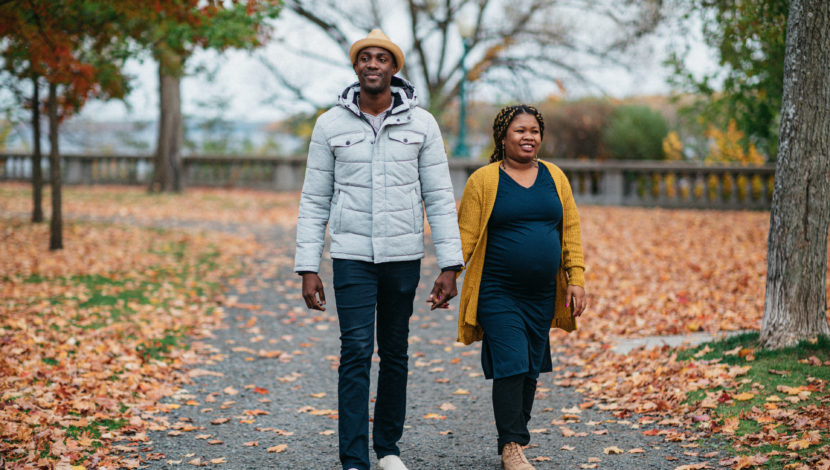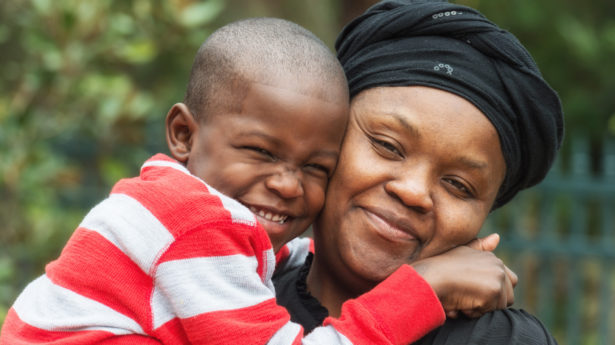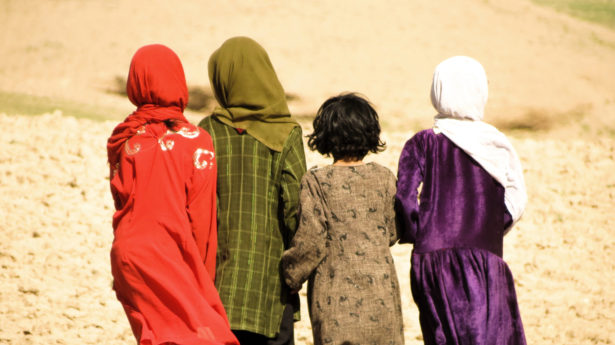The Unitarian Universalist Service Committee advances human rights through grassroots collaborations.
Reuniting and Resettling Immigrant Families

February 15, 2022
UUSC’s work to help individuals and families access asylum continues to build beyond policy advocacy and includes many options for congregations and individuals to provide direct support.
Reunification of Families Separated at the Border
We all remember the widespread protests during the summer of 2018 when the Trump administration intentionally separated parents from children when the families requested asylum at the border. More than three years later, there are still around 280 children awaiting reunification with parents that were deported without them. Al Otro Lado, a UUSC ally, is working to bring those families back together through a humanitarian parole program designed specifically for parents who were separated from children by U.S. Customs and Border Patrol to come back to the United States.
Through UUSC’s Congregational Accompaniment Program for Asylum Seekers (CAPAS), UUSC has been working with Al Otro Lado to provide volunteer support for the families that are reuniting. After three years apart, the trauma and the damage to the parent-child relationship are not quickly undone, and parents do not immediately receive work permits, making it nearly impossible to be financially stable upon arrival. CAPAS is currently working with more than a dozen congregations across the country to coordinate teams of people who will journey with these families as they work to heal and find stability. In addition, we have been alerted that many more families will be reunited in coming weeks and months and CAPAS will be working with Al Otro Lado to seek supportive groups in the cities where the reunifications are taking place. For more info on the CAPAS program and how to participate, click here.
For years, UUSC has been advocating to end family detention and ensure it does not become the “more humane alternative” to family separation because it is also incredibly traumatizing and unnecessary. The good news is that as of December 2021, the United States is no longer detaining families in any of the three remaining facilities for that purpose. The bad news is that the facilities have not been closed, and there is no formal policy change barring the use of family detention in the future.
Afghan Resettlement
UUSC is not a resettlement agency and doesn’t directly provide resettlement services, but does engage in advocacy with coalitions to improve the process for Afghan refugees. UUSC also supports some congregations working with arriving Afghan families through other resettlement agencies. UUSC is tracking, communicating with, and bringing together congregations working with Afghan refugees. If your congregation has been doing this work and you haven’t yet been in touch with UUSC, please reach out to Heather Vickery, UUSC’s coordinator for congregational activism, at hvickery@uusc.org.
Family separation has been an issue in this context also. Since the fall of 2021, UUSC has been in partnership with VECINA, a legal aid organization that works with volunteer lawyers and sponsors to bring Afghan families to resettle in the United States through humanitarian parole. VECINA was representing four children (now five) who made it onto evacuation flights to the United States without the rest of their families during the chaos at the Kabul airport after the U.S. withdrawal from Afghanistan. All four children were staying in shelters for unaccompanied minors run by the Office of Refugee Resettlement with plans to go into foster homes unless their families could also get into the country.
In every case, the family consisted of between seven and 10 other people, including parents, siblings, and sometimes grandparents, for a total of 33 family members. UUSC did outreach to members and congregations who expressed interest in helping, and held an orientation call and Q&A. Over the course of the following months, UUSC worked with VECINA to find sponsors for all four families and worked with congregations and UU State Action Networks to raise funds directly for the filing fees and the family’s expenses upon arriving in the United States. In the meantime, one of the UU volunteers brought VECINA’s attention to an additional case of a separated Afghan child in her state, and they are now representing that child’s family for parole too. While the process is slow, each family has been assigned pro-bono attorneys to assist with their parole applications, and VECINA is working with partner organizations to explore avenues to evacuate these families.
Haitian Asylum-Seekers
Additionally, UUSC has partnered with a Haitian organization locally, the Immigrant Family Services Institute (IFSI), to connect volunteers in the Boston community (including many UUs) to Haitian individuals and families arriving from the border. In particular, IFSI and UUSC are working on a sponsorship project to get Haitians released from detention who otherwise would be deported or have their entire asylum case heard from inside detention (which means a much higher likelihood of losing). UUSC has also connected Haitians with bond funds to get their bonds paid for and helped arrange for two short-term host homes. So far, UUSC has trained 105 potential volunteers, matched nine Haitians in detention with sponsors and submitted their parole applications, and supported three cases that have resulted in release so far. This work to support Haitian asylum-seekers in the U.S. takes place alongside our advocacy regarding the abusive treatment of Haitians at the border, and our renewed grassroots partnerships in Haiti following the most recent earthquake.
UUSC needs your support and partnership. Would you like to get involved? Email hvickery@uucsj.org to learn about how you can have an impact on these families. Together, we can realize our shared value of ensuring that the right to migrate is respected.
Image Credit–iStock: Instants

